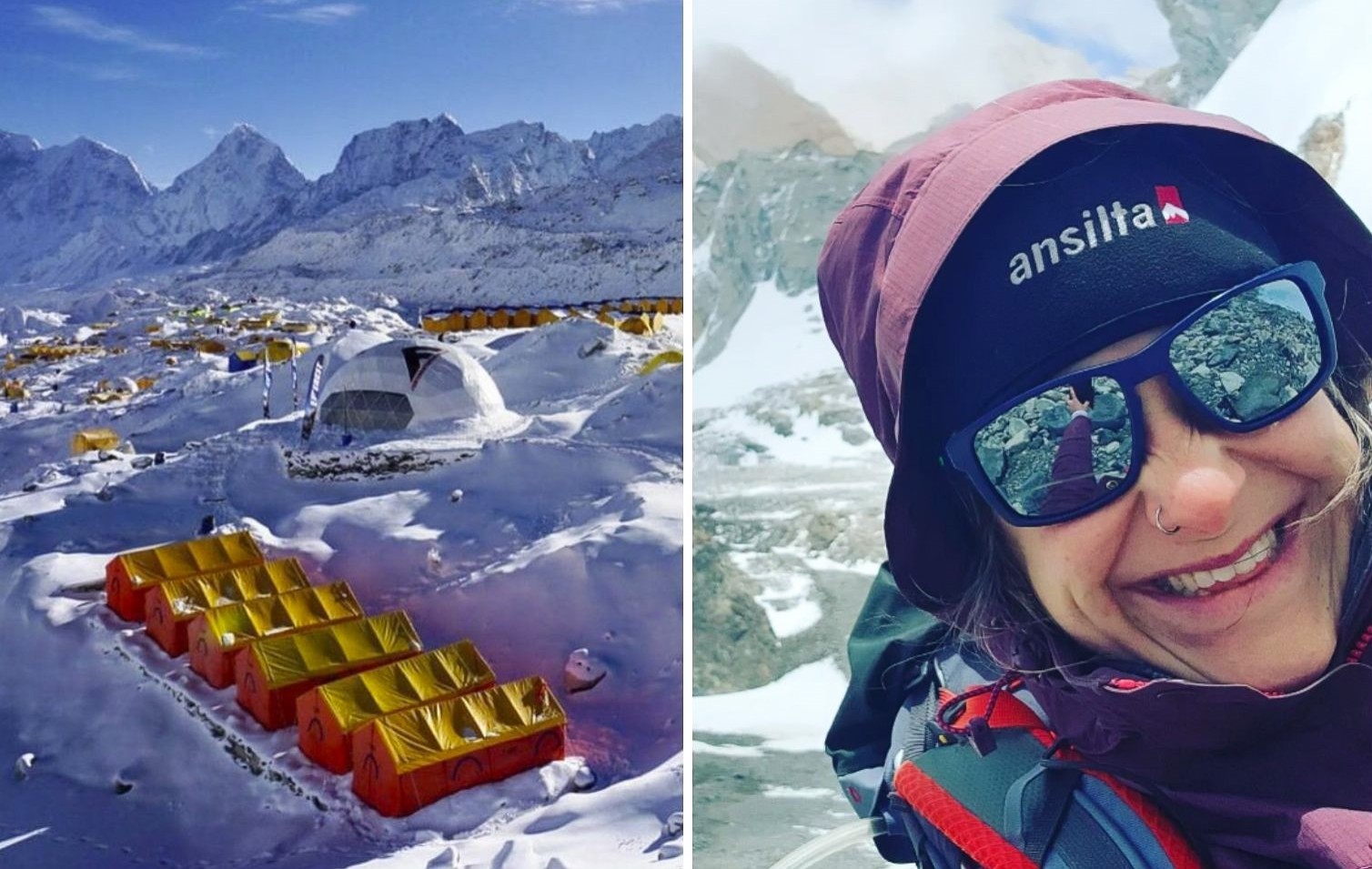"When I cook for climbers, I always think that the people I serve are living their life's dream, and I have the privilege of nourishing their body and soul." Portrait of High-Altitude Chef Huilén Pascal.
The story
Huilén Pascual, affectionately known as "Huili" to her loved ones, had everything one could desire: a stable relationship, a home, and a pet. But one day, while working in her bakery on José Ingenieros Street in Río Gallegos, she decided to change the course of her destiny. Thus, she encountered a former classmate who was recruiting chefs for the mountain company he worked for, and the story of the first female chef at an Everest base camp was born.
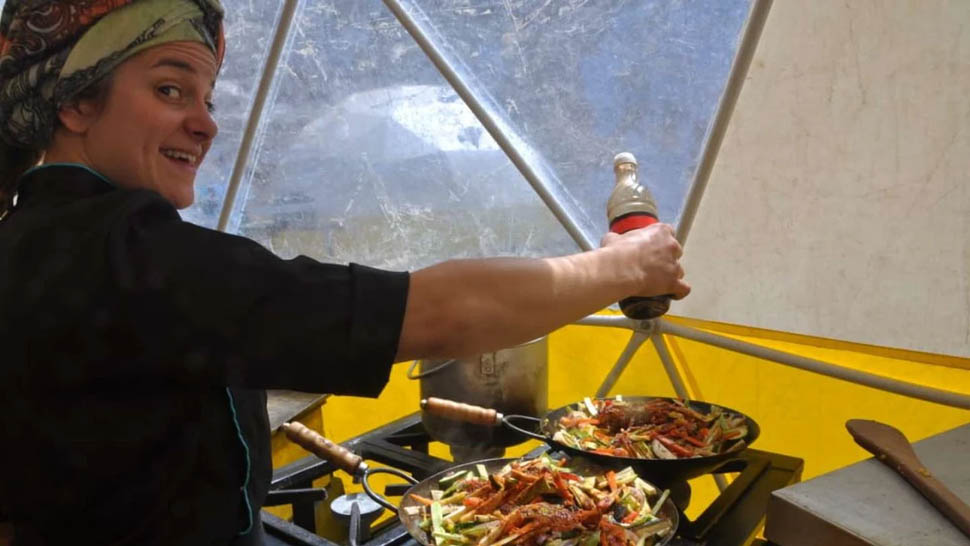
Huilén, originally from Godoy Cruz, Mendoza, began her career in the food world by selling hot dogs outside a nightclub when she was 17 years old. But now, at the age of 29, she works for companies that provide infrastructure and services to mountaineers climbing the world's highest mountains, whether for research purposes or simply to have a unique life experience. These companies set up their facilities at base camps on the mountains, at an optimal altitude for those aiming to reach the summit. For example, the Everest base camp, with a total height of 8849 meters, is located at 5300 meters above sea level, as between 5500 and 5800 meters, the human body undergoes drastic changes. Therefore, these locations provide perfect support points for mountaineers, who can stay there for three to five days before resuming their journey.
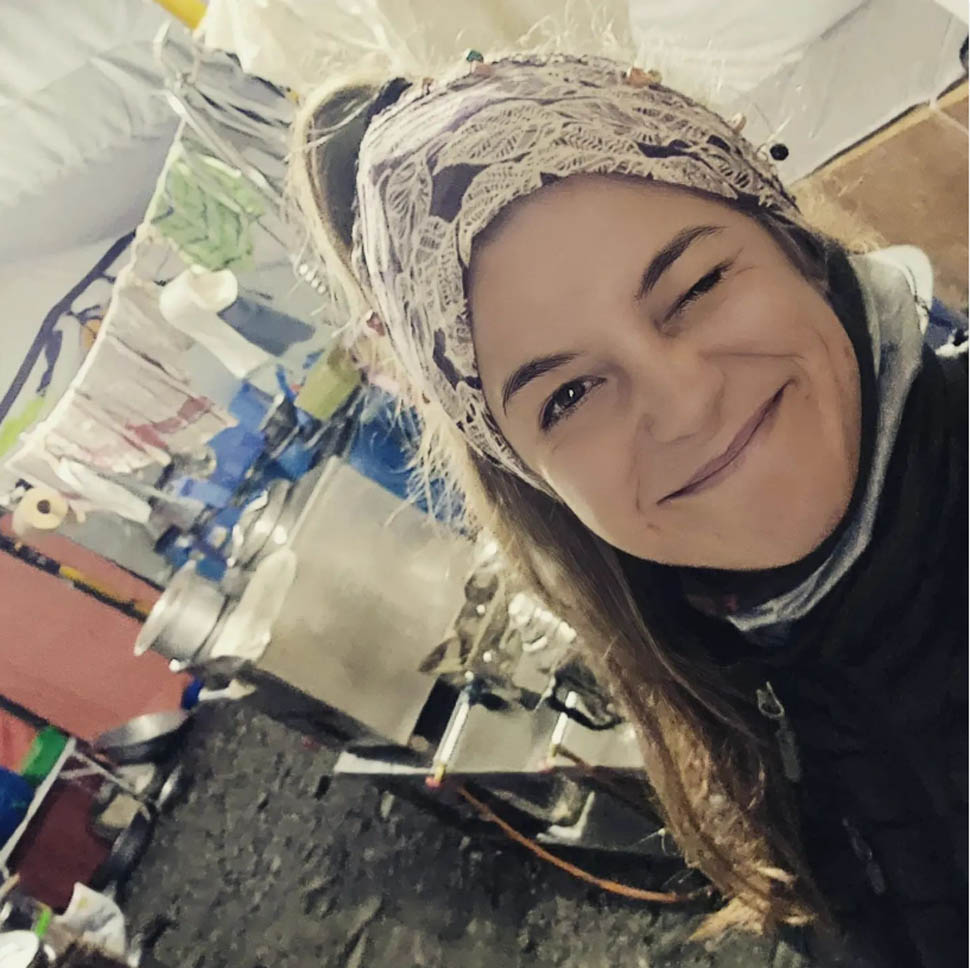
The first mountain Huilén had to climb was Aconcagua (6962 meters) for three months: from November to March. The following year, she got an interview for another company providing services at the Puesto de Mulas on the same mountain, but a fracture postponed her work for another year. After her recovery, she would have never imagined what would happen next. "An Austrian entrepreneur, who owns a company called Furtenbach Adventures, fell in love with the system and the meals we were making. He sought the advice of his chef, and they hired me. I left with a debt of $1500 and only had $20 in my pocket, I didn't even speak English," Huilén told BBC. "We started a seven-day trek to acclimatize. When I entered the base camp, I found a canteen full of Sherpas. There were 33 of them. There wasn't even a table: from the counters to the stoves, everything was resting on bare stone. That's when I discovered I was the first woman in history to cook in the base camp."
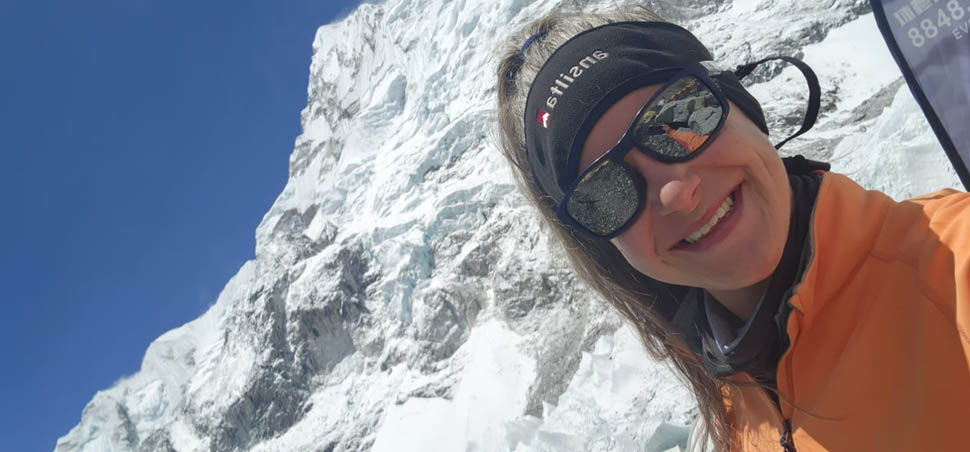
Huilén has been part of the base camps of Aconcagua, Everest, Manaslu (8,163 meters), K2 (8,611 meters), and Broad Peak (8,051 meters). In the early seasons, she would receive a list of clients who were going to climb and the corresponding food to prepare for them. Based on this, she would make a list of the ingredients she needed to be sent to her. However, in the later seasons, she would purchase various products and, as she ascended, she improvised with what she had. The first thing she did was to organize the place, the kitchen, and the storage. Then she added her touch to the menu offered to the clients, who pay between 60,000 and 100,000 euros for these long expeditions. "People who go trekking at these altitudes need carbohydrates that give them energy in the morning. We have fifteen recipes that we repeat throughout the season that are delicious, but the body, being at high altitude, undergoes a lot of energy stress. If you don't also provide them with the right amount of protein to balance the meal, you risk compromising their health."
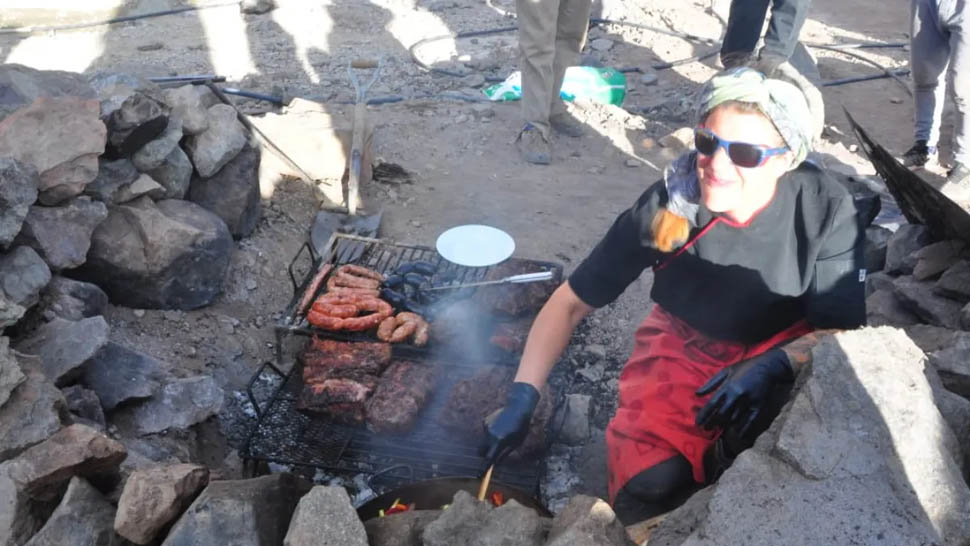
In her experiences at base camps, she has lived through many difficult moments. "At these altitudes, people often die. It happened to me once that one of our guides, who always went to Everest, accustomed to climbing mountains without oxygen at over 8000 meters and skiing down, disappeared during an expedition in Nepal. They found him dead about 400 meters below the summit, sitting. When you go into the mountains, you know you can lose your life. I also risk my life every day here. But those who love me know how happy I am here.
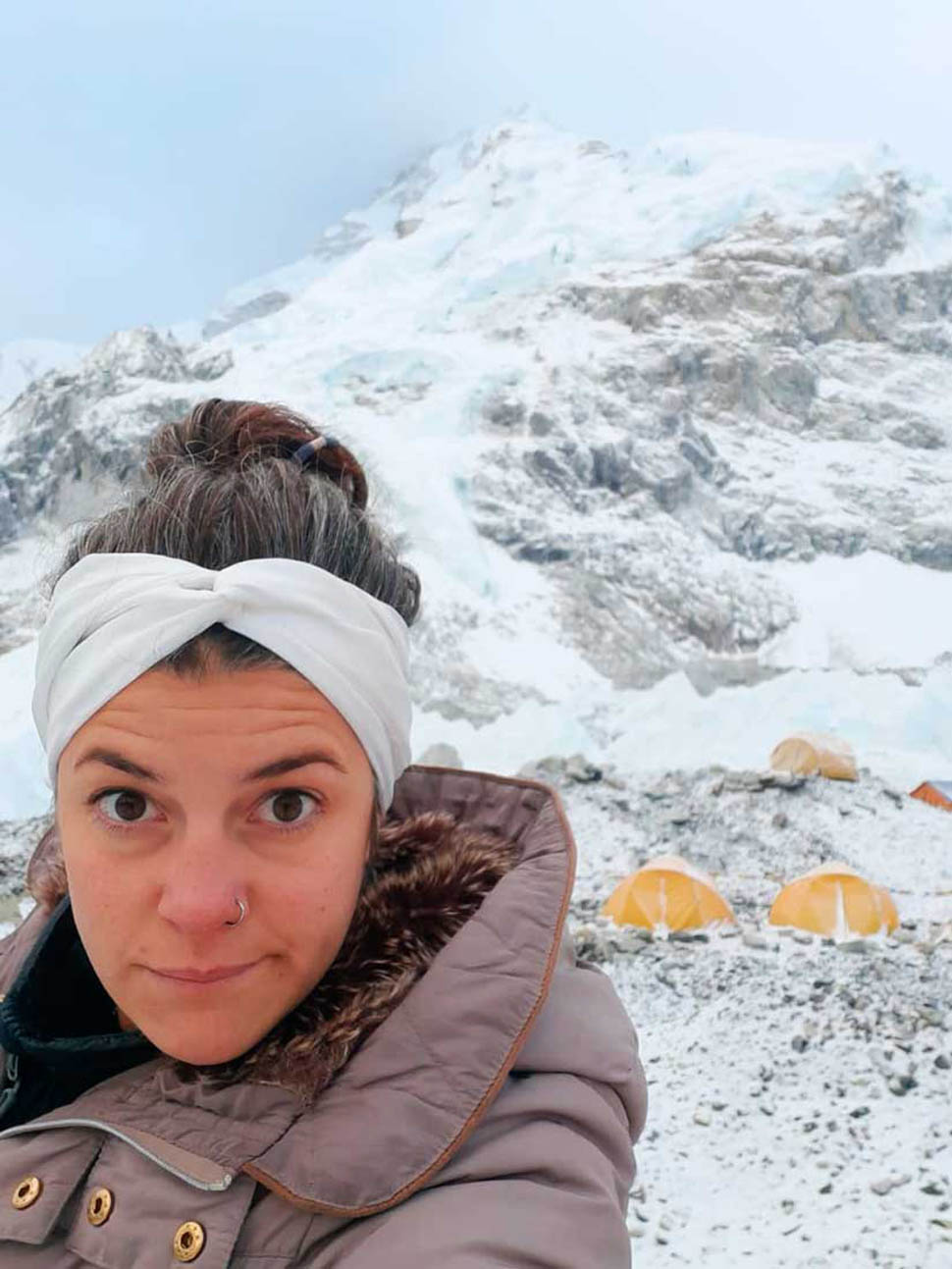
"When I cook for climbers, I always think that the people I serve are realizing the dream of their life, and I have the privilege of nourishing their body and soul," she added. "So I put all of myself into it because I think the bread I'm cooking on that occasion will seem like the best of their life. In a base camp, the kitchen is the soul: there is fire, there food is made, there everything is operational from 5 in the morning until 10 at night. I am now like the mother of the Sherpas and the mother of all those clients who come into the kitchen to talk about anything, about the feeling that awakens up there. Very profound things come out, the mountain is a magical place."
